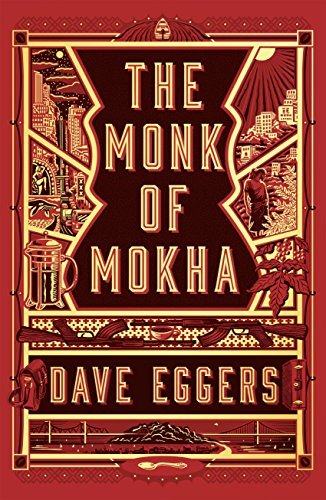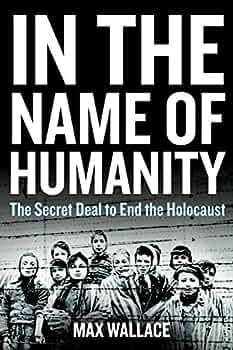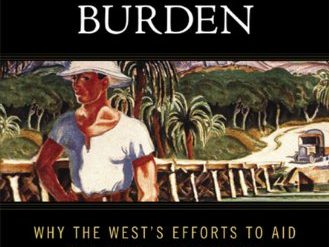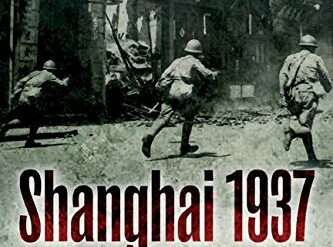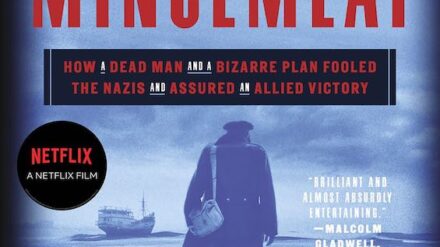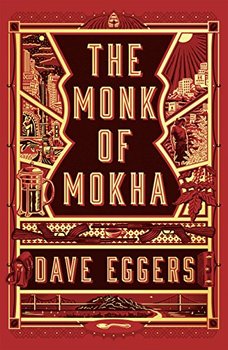
In the latest example of Dave Eggers nonfiction, the San Francisco author has struck gold once again with the extraordinary story of the Yemeni-American entrepreneur Mokhtar Alkhanshali, “a poor kid from [San Francisco’s] Tenderloin who now has found some significant success as a coffee importer.” But that description barely scratches the surface. Mokhtar is the man who introduced now-highly-praised coffee from Yemen to the American market. And he did so after surviving an odyssey through war-torn territory worthy of Ulysses himself.
Estimated reading time: 4 minutes
A civil war few outsiders can understand
Few Americans can locate Yemen on a map, even though the country is frequently in the news. (It’s located at the southern end of the Arabian peninsula across a narrow strait from the tiny African nation of Djibouti. Yemen lies just south of the much larger and richer nation of Saudi Arabia.) A brutal civil war has been underway in the country since 2014. The war pits an ethnic group called the Houthis, who back the ousted former president, against those who opposed him, backed by Saudi Arabia.
Saudi warplanes (purchased from the USA) have been dropping bombs (also purchased from the USA) on Houthis and anyone in their vicinity for nearly four years. This has resulted in a massive famine and other deprivations affecting three-quarters of the nation’s 28 million people, not to mention thousands of deaths. The already desperately poor country is a shambles. And as if civil war and famine aren’t enough, Yemen is host to Al Qaeda in the Arabian Peninsula, the most powerful remnant of Osama bin Laden’s terrorist network, and ISIS. Despite all this, Mokhtar Alkhanshali has managed to grow, process, and export many tons of high-quality coffee from Yemen to the United States.
The Monk of Mokha by Dave Eggers (2018) 353 pages ★★★★★
The history of coffee began in Yemen
Ethiopia, the huge country across the Red Sea from Yemen, lays claim to having originated coffee production in the 9th century based on a flimsy legend of a goatherd who chewed on the beans and got high. But the historical evidence is stronger for Yemen’s contention that the industry was launched five hundred years ago by “the Monk of Mokha.” Mokha (or Mocha) is a port on the Red Sea coast of Yemen. There, according to legend, a Sufi holy man named Ali Ibn Omar al-Shadhili “first brewed the bean into a semblance of what we now recognize as coffee.”
Over the centuries, cultivation of the coffee plant moved (mostly by outright theft) from Yemen to many other countries in Asia, Africa, and Latin America. Meanwhile, coffee production steadily declined in Yemen both in quantity and quality. When Mokhtar became animated by the obsession to import “specialty” (high-quality) coffee from Yemen, the country’s output had gained a reputation for highly uneven quality and often simply bad taste. Coffee farmers there had been abandoning the crop in droves.
“I will resurrect the art of Yemeni coffee and restore it to prominence throughout the world,” Mokhtar had confided to a friend. Astonishingly, that is exactly what he achieved. Fleeing Yemen with a colleague, he personally carried “the first coffee to leave the port of Mokha in eighty years. . . . By July 2017, Port of Mokha coffee was available . . . all over North America, Japan, Paris and Brazil . . . [and] the Coffee Review awarded” one variety of Yemeni coffee “the highest score issued in the publication’s twenty-year history.”
Another superior example of Dave Eggers nonfiction
Eggers’ account of Mokhtar’s experience reads like an adventure story. His description of the history of coffee and of its cultivation and processing is equally fascinating. This book is, in truth, another outstanding example of Dave Eggers nonfiction.
For further reading
I’ve previously reviewed three other books by Dave Eggers. Among them were two novels, A Hologram for the King (“Dave Eggers goes to Saudi Arabia and finds a desert“) and Heroes of the Frontier (“No heroes on this frontier“). As you might gather from the titles of my reviews, I didn’t enjoy either one of them all that much. However, I loved Zeitoun (“Life in the maelstrom of Hurricane Katrina“). There appears to be a pattern here. Not only are both the books I liked nonfiction, but also they’re both about Islamic immigrants to the US. However, I did enjoy reading Eggers’ What Is the What, a fictionalized account of the life of a Sudanese child soldier named Valentino Achak Deng—which, perhaps not incidentally, is also a story about an immigrant from a faraway land.
Like to read good biography? Check out Great biographies I’ve reviewed: my 10 favorites.
If you enjoy reading nonfiction in general, you might also enjoy:
- Science explained in 10 excellent popular books
- My 10 favorite books about business history
- Top 10 nonfiction books about politics
And you can always find my most popular reviews, and the most recent ones, on the Home Page.

